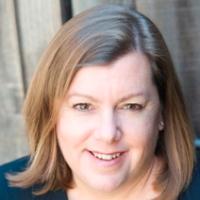
Countering our biases leads to healthy democracy
It’s possible the past few weeks of tortured discourse around Brett Kavanaugh’s appointment to the Supreme Court exemplifies confirmation bias like few other current parables have. As humans, we tend to interpret new evidence as confirming what we already believed.
My belief is that the best we can do to counter our biases is to vigilantly acknowledge them, disclose them and actively seek to understand other points of view. The attempt to get all the perspectives in the room and to create a dialogue is the true work of leadership.
This has been my belief for many years, and informed the work I have done in a variety of roles, as a business executive, a nonprofit CEO, and the president of an all-girls Catholic high school.
So I find the outrage that some Facebook employees expressed about a top executive’s choice to attend the nomination hearing of his friend, Brett Kavanaugh, misplaced. Joel Kaplan’s presence reminds us that having true friendships with people across the political spectrum is one of the ways we will work our way back to a more secure democracy. If we do not befriend people with different points of view, how can we ever hope to find common ground?
“If you are a strong brand, never get involved with the Holy Trinity: sex, religion and politics,” Russell Quinan, chief strategy office for Theory SF, a branding agency, told Yahoo Finance to explain why Kaplan’s attendance was a mistake. Other brand strategists agreed.
This is what is wrong with seeing people as brands. Joel Kaplan is not Facebook. Mark Zuckerberg, one could argue, is. I would like to think that Mark Zuckerberg might also choose to support a friend in a tough moment, even if his politics did not line up with the politics of that friend. It also highlights one of the common ethical dilemmas people in leadership positions face: balancing their professional role and their personal lives.
The negative reaction by many Facebook employees to Kaplan’s presence at the hearing was a critical reminder that our workplaces are filled with people with myriad points of view, and that this is a strength. Diversity of political thought is a critical element we need in decision-making bodies, like boardrooms and hearing rooms, and also in our private lives, on the beach, around the campfire. Indeed, the outcry from Facebook employees was ironic, given that Facebook has contributed to creating the very echo chambers of like-mindedness that contribute to the great divide.
Having friends that I know will be my friends for life even if we disagree politically is one of the strongest assets I have had in any of the roles I have held professionally. It means I have a safe place to go to try to understand the life experiences and goals my friends have and how they could be so different from mine. When people with diverse backgrounds have healthy relationships with one another, higher quality decisions can be reached.
If we believe having more women in the boardroom is positive—and I do—then we must also see the benefit that a senior Facebook executive is a friend of a conservative jurist. We need the engagement of all “the people” to have a healthy democracy. Not just the ones who think like we do.
Ann Skeet is the senior director of leadership ethics at the Markkula Center for Applied Ethics at Santa Clara University. A version of this article appeared in MarketWatch on Oct. 11.
Photo by Isai Ramos

